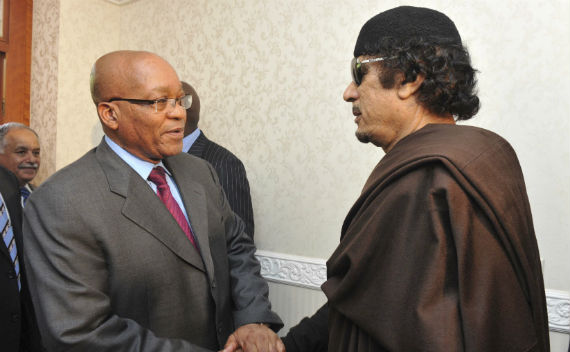Zuma’s Opposition to the Libyan NTC
More on:

The day before an African Union meeting in Pretoria to discuss Libya, Zuma reminded the South African National Assembly that the AU does not recognize the Libyan transitional government, despite the fact that Qaddafi is gone. These statements are part of what has been Zuma’s consistent opposition to intervention in Libya, including the NATO airstrikes and unfreezing Libyan assets for the NTC. (South Africa ultimately agreed to the later, but only after pressure).
This is curious given that twenty African governments have recognized the NTC, including, Nigeria, Ghana, Ethiopia, and even Sudan. Or maybe not all that curious.
South Africa commentator Greg Mills explains Zuma’s quixotic stance, one that, as some commentators have noted, risks undermining South African credibility and effectiveness as a regional leader on foreign policy. Mills identifies six “drivers”: “a visceral rejection of external involvement,” which, he notes, likely has a racial dimension considering NATO’s role in Qaddafi’s fall; that South Africa is trying to reestablish its “radical credentials,” which were damaged by South Africa’s initial support for the UN resolution that brought NATO into the fray. This approach, Mills argues, is a low cost way of doing so, at least domestically. (Internationally, South Africa has likely diminished its political capital).
Mills’ third driver is the impact of the Israel-Palestinian conflict on South Africa’s Middle East policy, and its perceived similarities in South Africa with apartheid. Number four is “a predilection to replicate the South Africa negotiated solution,” which Mill’s argues the success of has been “distorted and mythologized”; and number 5 is the “misplaced notion” of a global power shift east.”
Finally, and perhaps most damningly, is Qaddafi’s proclivity for “spraying money around the continent and at its politicians,” implying that at least some of the former Libyan leader’s support has been purchased.
Read his article here.
H/T to Asch Harwood.
More on:
 Online Store
Online Store
